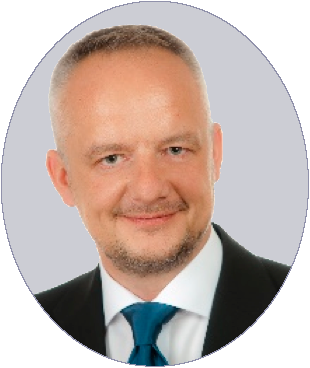Follow up to the CEIPI Executive IP management days
On November 20.11.2020, the fifth version of the Executive IP management days was organized by the IP-Management program at CEIPI. This time they were organized fully in distance learning and participants earned a University Certificate from CEIPI. The full program is are available here.
The executive management days were revolving about the topics of digital patents and IP risk management. Digitalization changes the way how products are developed and who develops products. It is less classical R&D and more digital and software developers. This leads to an increase in digital patents, which have a more business and use case orientation compared to classical patents. But, through this change in patent activities also new challenges regarding IP, business, and legal risks appear. New competitors from digital industries with their own patent activities and existing digital patent portfolios are threatening the freedom to operate (FTO) of new products. So, there is a need for IP risk assessment of these new threats. Here are the summaries of the talks and links to further material.
Summaries of the presented talks:
Summary: Digital Patents – A real life experience with Netflix
Digital patents are used to protect digital business models from imitation. Digital patents protect the value-enhancing steps of a digital Business Model. Business Models describe substantial mechanism by which a company capitalizes based on a value-added process i.e. how it creates, delivers and captures value for a defined target customer. Within a digital Business Model at least one value creation mechanism, value delivery mechanism and/or value proposition is substantially characterized by the application of digital technologies.
As YouTube started in 2005 Netflix came under pressure. Netflix started a new distribution channel by online streaming in 2007 in the US. In 2014 Netflix expanded to EP and DE in particular. Netflix gives a legal access and seamless service without the interruption of buffering.
In 2013 Germany was a diverse small market for Video on demand (VoD) with less than 100 mio. EUR revenue. By end of 2020 the revenue grows to 1370 mio. EUR. Accordingly, the German market for paid video streaming grew between 2012 and 2018 by 82% annually. In 2020 Amazon Prime has a market share of 30% and Netflix 28% in Germany.
Netflix made use of digital patents in order to create an exclusive sphere around the value proposition, being the VoD provider with no buffering or other interruption. For instance EP2909732 B1, EP2457174 B1, EP2467956 B1, EP2834746 B1 and others aim at improving the bandwidth and thereby the streaming ability for the end user. Netflix improves average bandwidth by more than 50% compared to the state of the art than static content delivery network (CDN) assignment strategy. Another pair of patents increases the video stream quality: EP2654225 B1 and EP2666098 B1. Further patents aim at providing and establish security for increased stability against attacks by third parties without affecting the speed of streaming, those are EP2735117 B1, EP2681662 B1, EP2852122 B1, EP2791847 B1.
Thus, Digital Patents and Digital Business Models are utilized to create a sustainable competitive advantage within Digital Business Models. However, Digital patents can be assessed and created only with understanding of the Digital Business Model. Netflix utilized Digital Patents in order to create a sustainable competitive advantage when hitting the European, i.e. German, Market, whereby key steps within Digital Business Model have been made exclusive.
 Lecturer Moritz Breitenbach: Moritz Breitenbach studied Organic Chemistry and Chemical Biology at ETH Zurich and obtained his Master of Science in Biochemistry and Immunology. He is qualified as German and European Patent Attorney. In 2018, he obtained his Master of Intellectual Property Law and Management (MIPLM) at CEIPI, University of Strasbourg, France. He works as an In-house Patent Counsel at B. Braun Melsungen AG.
Lecturer Moritz Breitenbach: Moritz Breitenbach studied Organic Chemistry and Chemical Biology at ETH Zurich and obtained his Master of Science in Biochemistry and Immunology. He is qualified as German and European Patent Attorney. In 2018, he obtained his Master of Intellectual Property Law and Management (MIPLM) at CEIPI, University of Strasbourg, France. He works as an In-house Patent Counsel at B. Braun Melsungen AG.
For further reading please have a look at the master’s thesis of Moritz Breitenbach about “Characterization of digital patents and their systematic structuring” and the implementation of IP strategies at Tencent and Disney+.
Summary: Patenting of use cases
In the second session, Theo Grünewald reported on the protection of use cases through patents. The lecture was based on a project of the IP Business Academy, in which interesting use cases that were patented by companies are identified and processed. In essence, Theo Grünewald pointed out that a distinction must be made between a business model and a use case. While the former describes the mechanics of business, the latter reflects the interactions between several actors (including non-human actors). It is not necessary for a use case to be marketed through a single business model. Rather, there can be complex relationships between use cases and business models. It is essential for the design of use cases that they are developed from the customer’s perspective. In order to protect use cases, it is also necessary to design the technical solutions required to implement the use case in such a way that they are accessible to patent protection. This was explained using several examples, such as listening to music, gamification approaches and operator models.
 Lecturer Theo Grünewald: He is senior consultant at WURZER & KOLLEGEN GmbH and a research fellow at the Steinbeis Transfer Institute for Intellectual Property Management at Steinbeis University Berlin. He is a lecturer at the Master’s degree course in Intellectual Property Law and Management (MIPLM) at the Center for International Intellectual Property Studies at the University of Strasbourg. Mr. Grünewald has authored numerous publications on IP strategy development, IP management, and IP valuation and is also a member of the DIN committees DIN 77006 for quality in IP management and DIN 77100 for patent valuation.
Lecturer Theo Grünewald: He is senior consultant at WURZER & KOLLEGEN GmbH and a research fellow at the Steinbeis Transfer Institute for Intellectual Property Management at Steinbeis University Berlin. He is a lecturer at the Master’s degree course in Intellectual Property Law and Management (MIPLM) at the Center for International Intellectual Property Studies at the University of Strasbourg. Mr. Grünewald has authored numerous publications on IP strategy development, IP management, and IP valuation and is also a member of the DIN committees DIN 77006 for quality in IP management and DIN 77100 for patent valuation.
For further reading please have a look at the patenting of lighting use cases at Philips/Signify and the master’s thesis of Dr. Jamie Soon Jia Mei about “Digital transformation in the regulated health care industry: How to exclusify the digital consumer healthcare journey?”.
Summary: IP compliance
IP-Risks are the mayor threat for Industry 4.0 and, more specific, for companies that are running digital business models both for self-owned IP and for the possibility of infringing 3rd parties IP. The majority of IP-risks within corporate compliance and corporate governance is however infringement of 3rd parties IPR, which is intentionally or accidentally an issue of (non-)compliance. In the digital business model scenario existing risks are leveraged by its characteristic, the ubiquitous availability of data in real time and the interconnectedness of whole industries and public networks.
Organizations that aim to be successful in the long term need to maintain a culture of integrity and compliance, and to consider the needs and expectations of stakeholders. Integrity and compliance are therefore not only the basis, but also an opportunity, for a successful and sustainable organization especially in changing socioeconomic environments. Compliance is an outcome of an organization meeting its obligations and is made sustainable by embedding it in the culture of the organization and in the behavior and attitude of people working for it. While maintaining its independence, it is preferable if compliance management is integrated with the organization’s financial, risk, quality, environmental and health and safety management processes and its operational requirements and procedures.
An effective, organization-wide compliance management system enables an organization to demonstrate its commitment to compliance with relevant laws, including legislative requirements, industry codes and organizational standards, as well as standards of good corporate governance, best practices, ethics and community expectations and is robust towards transformation resulting from changes in the economic environment, such as Industry 4.0 and digital transformation and its consequences.
 Lecturer: Martin Salzburger. Martin Salzburger has a background in the automotive industry, worked for Daimler and Volkswagen. For more than 12 years he is IPR-portfolio manager at AIRBUS. He worked in different leading functions for economic exploitation of IP at AIRBUS. He is engineer by training.
Lecturer: Martin Salzburger. Martin Salzburger has a background in the automotive industry, worked for Daimler and Volkswagen. For more than 12 years he is IPR-portfolio manager at AIRBUS. He worked in different leading functions for economic exploitation of IP at AIRBUS. He is engineer by training.
Further material about the IP work at AIRBUS can be found related to the role of IP in the transformation of the aviation eco-system and know how protection.
Summary: AI-based third-party rights analysis
Digital business models are becoming increasingly important in the context of the digitalization of our society. This goes with IoT and Industry 4.0 and results in customer benefits that were not available before. To reduce the risk of an infringement a freedom to operate (FTO) analysis has to be performed for such new businesses. Part of such a FTO analysis, is a patent search to find out more about what is already protected by third parties. An at least partly automated search supported by an AI would be very beneficial. The use of AI has been intensively discussed and tested among patent experts for a few years and shows good results for the classification of patent applications in certain technical fields. A unified terminology seems to be essential at this point. It appears that AI is at least not yet ready to perform good search results in the area of digital patents, at least for the reason that artisans don’t use a common technical vocabulary.
 Lecturer: Roland Bittner. Roland Bittner studied electrical engineering with emphasis on control engineering and communications engineering at the Friedrich-Alexander-Universität Erlangen-Nürnberg. He graduated with a diploma thesis about reactive power compensation in electrical power networks. Since then, he is working for a large German technology and electrical engineering group. He started his career in the field of rolling mill technology and worked for it in Asia and North America. After that he worked in a service department for motion control products for machine tools and production machines. In 2000 he joined the patent department of the company and was trained as a German and European Patent Attorney. He was also trained in US patent law and passed the US patent bar. In 2019 he graduated from the University of Strasbourg, passing the CEIPI Master of Intellectual Property Law and Management.
Lecturer: Roland Bittner. Roland Bittner studied electrical engineering with emphasis on control engineering and communications engineering at the Friedrich-Alexander-Universität Erlangen-Nürnberg. He graduated with a diploma thesis about reactive power compensation in electrical power networks. Since then, he is working for a large German technology and electrical engineering group. He started his career in the field of rolling mill technology and worked for it in Asia and North America. After that he worked in a service department for motion control products for machine tools and production machines. In 2000 he joined the patent department of the company and was trained as a German and European Patent Attorney. He was also trained in US patent law and passed the US patent bar. In 2019 he graduated from the University of Strasbourg, passing the CEIPI Master of Intellectual Property Law and Management.
For further reading please have a look at the Master’s thesis presentation of Roland Bittner about “Potentials of AI-based third-party rights analyses for digital business models”.
Summary: DIN 77006
The new German IP-Management systems standard DIN 77006 is like ISO 9001 a generic standard and a set of requirements to implement, establish and maintain an IP-Management system in nearly any organization, large or small, whether it is a business enterprise, a service provider, or a patent law firm. The standard describes the essential processes that are part of modern IP management, such as IP strategy, IP generation and IP risk management integrated into an established process model.
The so called High-Level-Structure defines a standardized ISO 9001 framework on how to secure business opportunities and reduce risks to ensure the correct handling of intellectual property. Following the standard requirements especially complex IP risks resulting from digitization can be systematically identified, quantified, formulated as a management task, and reviewed with regards to the implementation of this task.
DIN 77006 also allows an organization to easily “integrate” their identified and documented IP-processes in an existing, well-known, and established Management system structure. Conformity with DIN 77006 provides the framework for legally secure action.
 Lecturer: Wolfgang Berres. Wolfgang Berres had worked for Siemens AG in the IT and communication technology sector for more than 20 years before joining WURZER & KOLLEGEN in 2009. There he is responsible for IP Operations. At the same time, he is the managing director of Altracon S.A., Luxembourg, a technology consulting company. As a member of the DIN Working Committee on Quality in Intellectual Property Management, Wolfgang Berres was involved in the development of DIN 77006. He is co-author of the book “360° IP Strategy” on IP management.
Lecturer: Wolfgang Berres. Wolfgang Berres had worked for Siemens AG in the IT and communication technology sector for more than 20 years before joining WURZER & KOLLEGEN in 2009. There he is responsible for IP Operations. At the same time, he is the managing director of Altracon S.A., Luxembourg, a technology consulting company. As a member of the DIN Working Committee on Quality in Intellectual Property Management, Wolfgang Berres was involved in the development of DIN 77006. He is co-author of the book “360° IP Strategy” on IP management.
For more information please have a look at the recording of the FICPI-Webinar on the new German Standard DIN 77006 with Prof. Dr. Alexander Wurzer and Dr. Malte Köllner.
Summary: IP risk assessment
Handling risks becomes particularly important with new digital features of modern products. New entrants such as Google own large portfolios of patents and may create new legal uncertainties particularly around data and networking applications. At the same time complexity and cost of Freedom-to-Operate analyses need to be balanced to allow cost efficient searches along the innovation process. To make right decisions, it is crucial that IP specialists and patent attorneys understand customer needs and the underlying business model.
 Lecturer: Axel Karl. Axel Karl Axel Karl is German Patent Attorney and founder of the Munich based Law Firm X-IP. He holds a diploma in electrical engineering and economics from the Technical University in Berlin and a master’s degree (LL.M.) from CEIPI Strasbourg for IP Law and IP Management. Axel worked 15 years in global telecommunications and IT companies such as Cisco Systems.
Lecturer: Axel Karl. Axel Karl Axel Karl is German Patent Attorney and founder of the Munich based Law Firm X-IP. He holds a diploma in electrical engineering and economics from the Technical University in Berlin and a master’s degree (LL.M.) from CEIPI Strasbourg for IP Law and IP Management. Axel worked 15 years in global telecommunications and IT companies such as Cisco Systems.
For further reading please have a look at the Master’s thesis about . “Analysis of the changing patent infringement risk situation in a digital transformation scenario” by Leonhard Brader.
The moderator was:
Prof. Dr. Alexander Wurzer
 Dr. Wurzer is Adjunct Professor for IP Management at the Center for International Intellectual Property Studies (Centre d’Etudes Internationales de la Propriété Industrielle, CEIPI) at the University of Strasbourg, where he has been Director of Studies for the Master’s degree in Intellectual Property Law and Management (MIPLM) since 2007. Prof. Dr. Wurzer is Director of the Steinbeis Transfer Institute for Intellectual Property Management at Steinbeis University Berlin. He is Managing Partner at WURZER & KOLLEGEN GmbH, a consulting firm specializing in strategic IP management. Prof. Dr. Wurzer is Chairman of DIN committees DIN 77006 for quality in IP management and DIN 77100 for patent valuation. He is a member of the Board of Directors of “Deutsches Institut für Erfindungswesen e.V.” (D.I.E.), Spokesman of the Board of Trustees awarding the Diesel Medal, and Fellow at the Alta Scuola Politecnica at Milan/Turin Polytechnic. He was also a jury member for the 2018 German Innovation Award of the German Design Council and is a member of the group of experts of the European Commission.
Dr. Wurzer is Adjunct Professor for IP Management at the Center for International Intellectual Property Studies (Centre d’Etudes Internationales de la Propriété Industrielle, CEIPI) at the University of Strasbourg, where he has been Director of Studies for the Master’s degree in Intellectual Property Law and Management (MIPLM) since 2007. Prof. Dr. Wurzer is Director of the Steinbeis Transfer Institute for Intellectual Property Management at Steinbeis University Berlin. He is Managing Partner at WURZER & KOLLEGEN GmbH, a consulting firm specializing in strategic IP management. Prof. Dr. Wurzer is Chairman of DIN committees DIN 77006 for quality in IP management and DIN 77100 for patent valuation. He is a member of the Board of Directors of “Deutsches Institut für Erfindungswesen e.V.” (D.I.E.), Spokesman of the Board of Trustees awarding the Diesel Medal, and Fellow at the Alta Scuola Politecnica at Milan/Turin Polytechnic. He was also a jury member for the 2018 German Innovation Award of the German Design Council and is a member of the group of experts of the European Commission.



